First Ladies Ranked From Most to Least Popular in American History

The exact role of the first lady in American history has always fluctuated depending on the year, social context, and the woman herself. However, during the Clinton administration is when experts say they saw public opinion play an increasingly major role in the actions of the first lady. Many prior first ladies had taken on certain initiatives to tackle during their time in the White House, but Hillary Clinton’s involvement in specific policy was different. Her actions led many Americans to view the first lady as more than just a social planner and occasional advocate, but rather a major player in politics.
However, even before the role of the first lady was examined through a public lens and researchers began to take note of metrics like approval ratings, these women were leaving their mark on American history. We collected the most famous first ladies throughout history and ranked them by most adored to least!
<span>1. </span>Eleanor Roosevelt
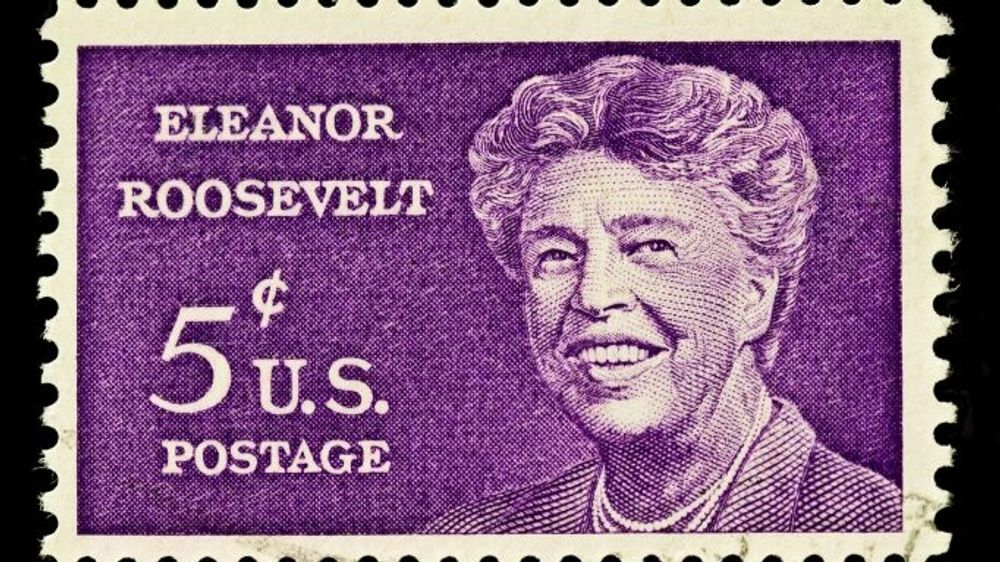
The Siena Research Institute conducts a survey about every 10 years meant to measure the public’s opinions of the first ladies over the years. Consistently since 1982, Eleanor Roosevelt has been ranked in the number one spot. At the time of President Franklin D. Roosevelt’s administration (1933-1945), Eleanor had a 66% approval rating among Americans. Her top initiative that she worked on was an effort to further women’s rights. While in service, Eleanor continued working as a writer and lecturer. Moreover, Roosevelt was actually the longest-serving first lady as her husband served four terms.
<span>2. </span>Abigail Adams
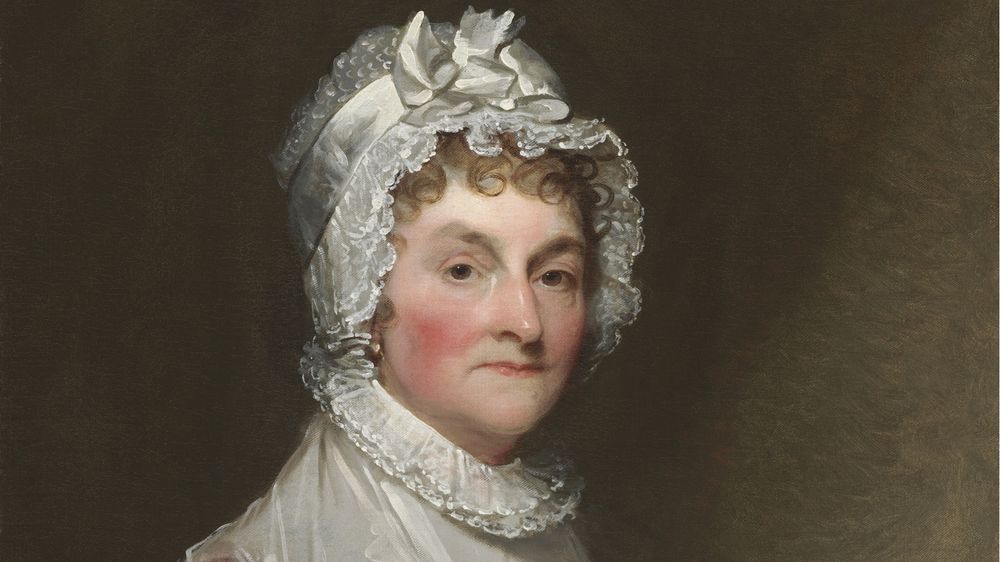
Abigail Adams is typically ranked second in Siena Research Institute’s study. She is considered the closest adviser to her husband — President John Adams. Moreover, she is the mother of who would become President John Quincy Adams. Abigail is remembered as an intellectual, often consulting on major issues that were to set American history. While her husband was in office, Abigail served as the formal entertainer, meaning she focused on the critical social status and reputation of the president and, ultimately, the White House. Prestige was key in political negotiations, especially at the time. In contrast to her predecessor Marsha Washington, Abigail took an active role in policy and advocacy.
<span>3. </span>Laura Bush
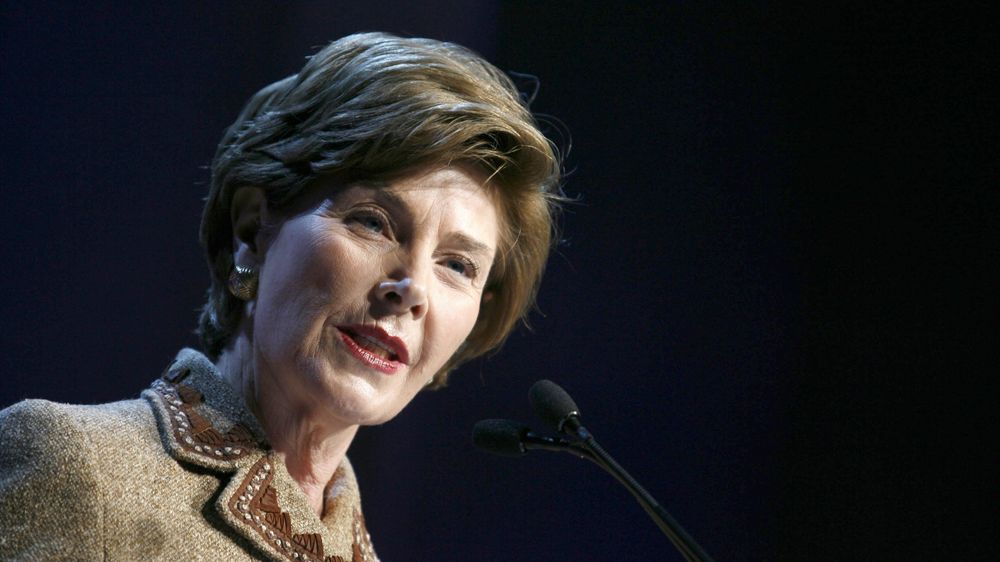
In Siena Research Institutes most recent survey, Laura Bush received the 24th first lady spot. The survey was conducted in 2003, which would be during her husband’s term. When Americans reflect on the present, they often have a much more pessimistic view than reflecting on the past. Her approval rating, though, was at a high 76%, creating a strange dissonance with the low ranking. Ultimately, in retrospect Laura is often respected and admired for her focus on education as the first lady. Moreover, she was serving as first lady during the tragedy of 9/11, putting her in a crucial role as a public figure. As such, she hosted a concert to raise funds for the families of the victims.
<span>4. </span>Lady Bird Johnson
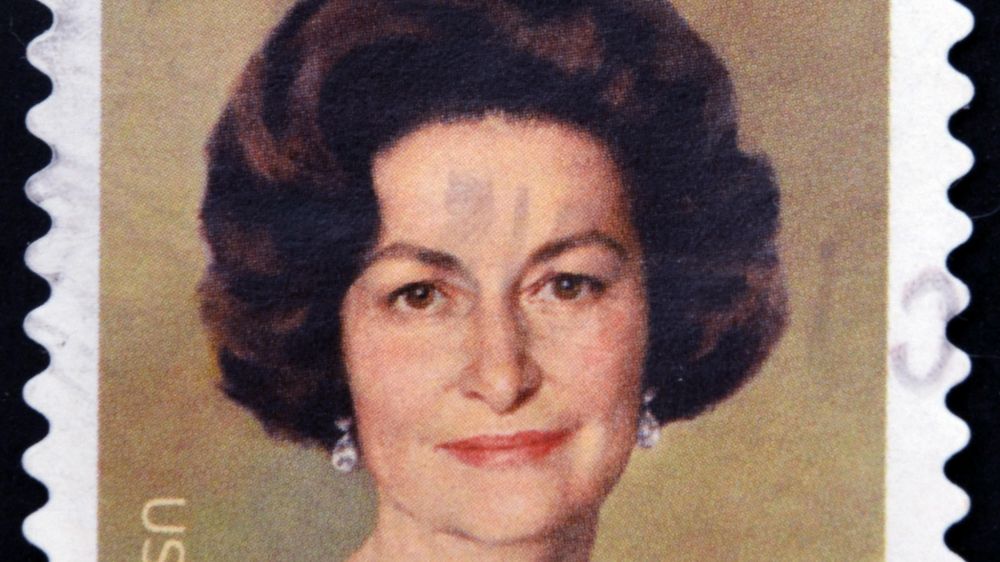
Lady Bird Johnson is known and beloved for her efforts toward environmental protection. She became the very first of first ladies to interact with Congress directly, having her own politically motivated staff to help her in the process. Eventually, she was able to successfully advocate for the Highway Beautification Act, leaving her legacy. Lady Bird was also the first financial contributor to President Lyndon B. Johnson’s political campaigns and career. She had a strong sense of finance and investing. In addition, she is known for being a socialite, having a knack for social capital and hosting. In Siena Research Institute’s study, she consistently ranks in the top 7 of first ladies.
<span>5. </span>Betty Ford
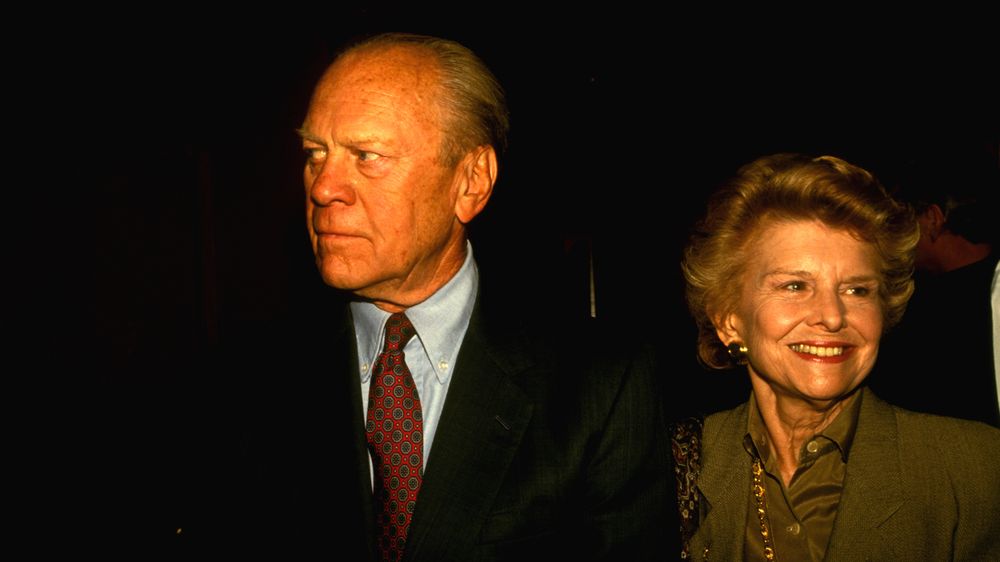
From 1974 – 1977, Betty Ford assumed the role as first lady following her time as second lady. After Richard Nixon resigned, President Gerald Ford assumed the position, making Betty unexpectedly the first lady. Nonetheless, Betty became one of the most beloved first ladies. Her approval rating was steady at a high 75%. Betty was known for being much more progressive than her husband and many members of her political party. She was passionate about women’s rights — even advocating for women’s reproductive rights. Moreover, she sought to tackle the issue of substance abuse. In Siena Research Institute’s study, she has consistently ranked in the top 9.
<span>6. </span>Dolley Madison
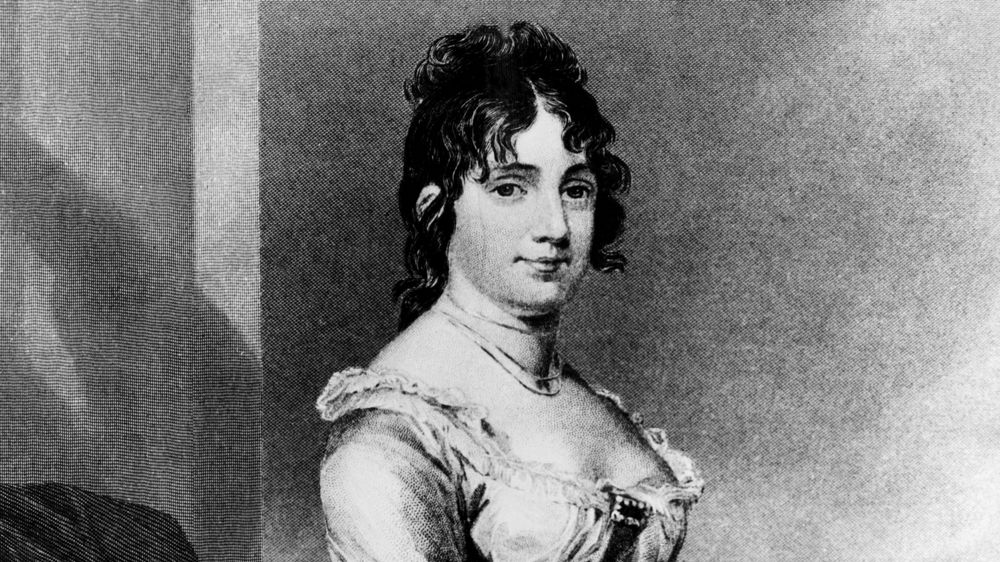
Dolley Madison left her mark by focusing her efforts toward bipartisanship. As the fourth-ever first lady of the United States, Dolley had a lot of room to make the role her own as the expectations were still being developed. She focused on party planning and garnering social capital. She notoriously invited political opponents to the same parties and bridged gaps across the aisle. As such, she is credited for solidifying the much more social role as the first lady. While she didn’t focus on policy, she knew the importance of social capital, especially during the era she served (1809-1817).
<span>7. </span>Rosalynn Carter
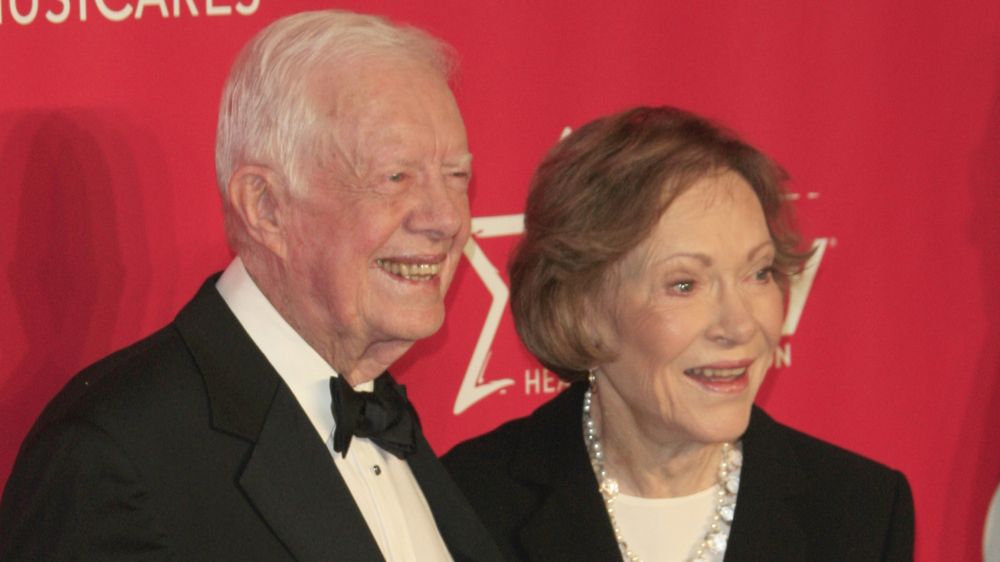
While only having an approval rating of 58% during her time as first lady, Rosalynn Carter is typically seen by the American people in a positive light. In 1993, she ranked fifth in the Siena Research Institute’s survey. In 2003, she ranked sixth. Rosalynn often made appearances at cabinet meetings during her husband’s administration. Moreover, she appeared as a representative abroad on President Jimmy Carter’s behalf, most often appearing in Latin America. Her particular initiative was focused on mental health. She testified before the Senate in regards to the Mental Health System Bill, which would later be enacted into law. Rosalynn is considered a strong advocate and writer in American society.
<span>8. </span>Jackie Kennedy
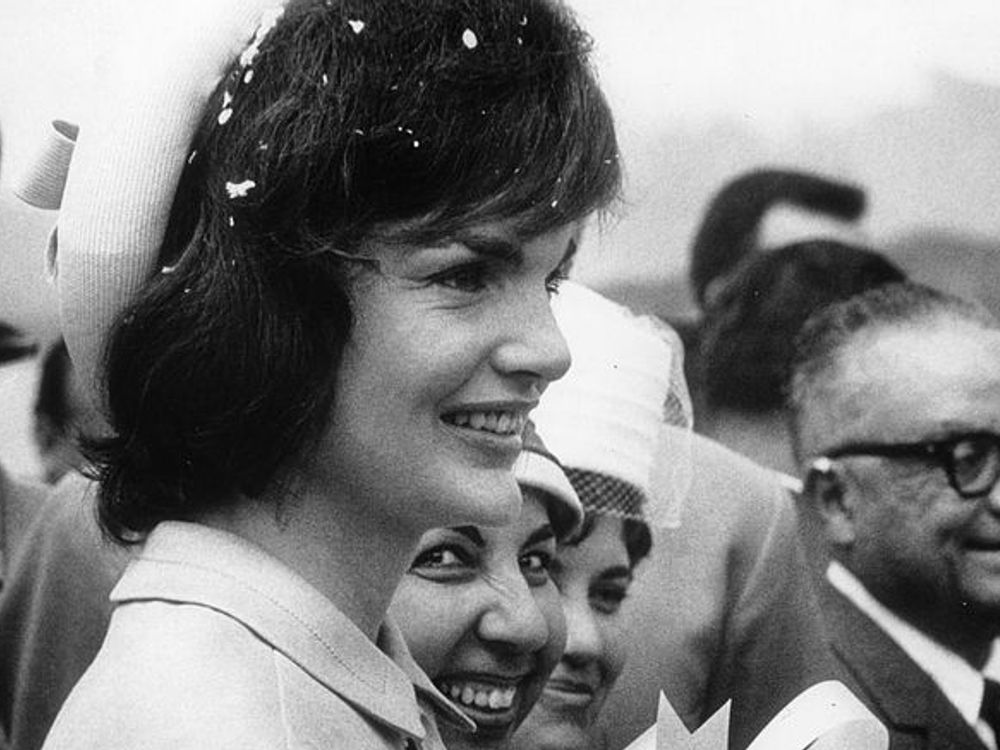
Jackie Kennedy is known for her association with aesthetics, art, fashion, and more. For many, Jackie O. was an icon in these creative fields — especially fashion. Her outfits from her time as the first lady are still often put on display today. Before being first lady, Jackie worked as a photographer and columnist. According to Gallup, she is one of the most admired people in American history. During her time as first lady, she focused largely on White House restoration, taking a special interest in the artwork and integrity of the interior decoration in the historic building. Additionally, Jackie often traveled globally with and without the president, providing a charismatic charm to political conversations. In Siena Research Institute’s study, she ranked number 8 in 1982, but has steadily climbed up the spots to peak at 4th in 2003.
<span>9. </span>Martha Washington
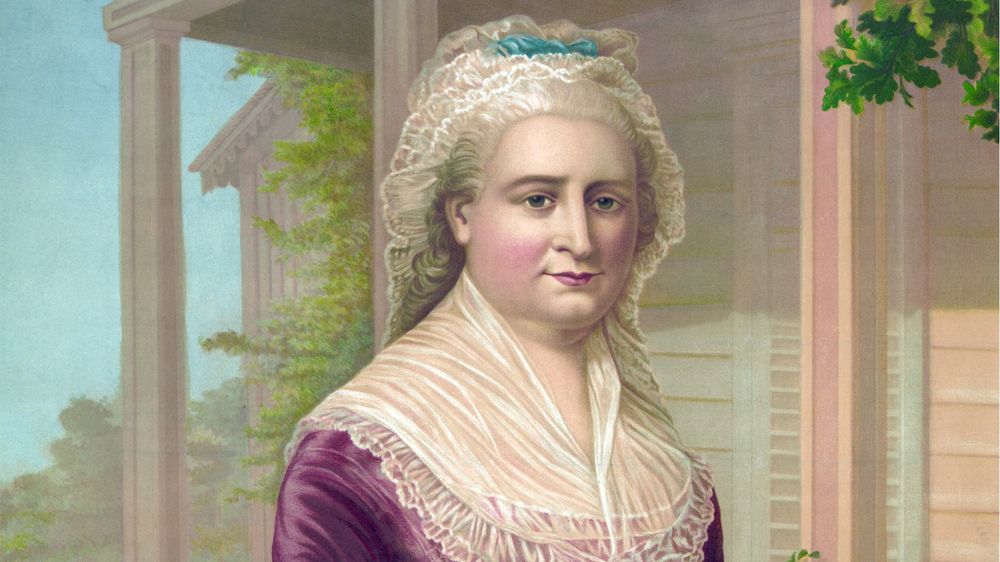
Martha Washington was the original first lady of the United States. As such, she would set the tone for many to come. It also meant she took on a role that was entirely undefined, being the first to sort through what this may mean for women in this sort of position. Since the official term didn’t exist yet, Martha was often called “Lady Washington.” Martha actually didn’t necessarily want her husband to assume the presidency. Nonetheless, she focused her time on social affairs and hosting. She was known for keeping up her appearance as kind and down to earth. History looks back at her favorably, with Siena Research Institute finding that the American people consistently rank her in the top 13 first ladies.
<span>10. </span>Edith Roosevelt
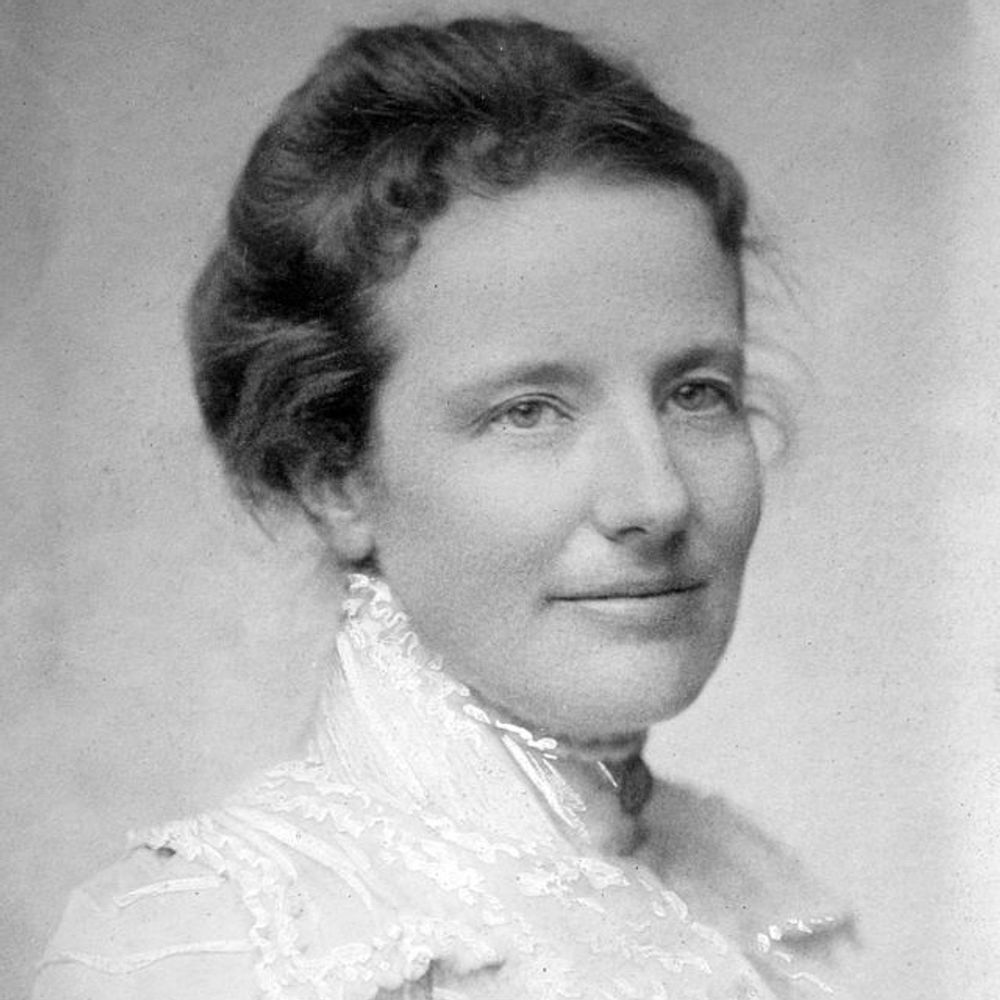
Edith Roosevelt took on the role of first lady in the aftermath of a tragedy — the assassination of President William McKinley. Edith is known for expanding the number of social events at the White House. She was known for being a center in Washington D.C.’s social society, acutely being sure that other politically involved wives followed suit. Edith is known for taking a much more subtle approach to policy influence. She would strategically supply her husband with key newspaper articles and occasionally liaise between important political figures and the president. She’s also known for her immense efforts toward the White House renovation in 1902. In 1982, she was ranked number 10 in Siena Research Institute’s study.
<span>11. </span>Lou Hoover
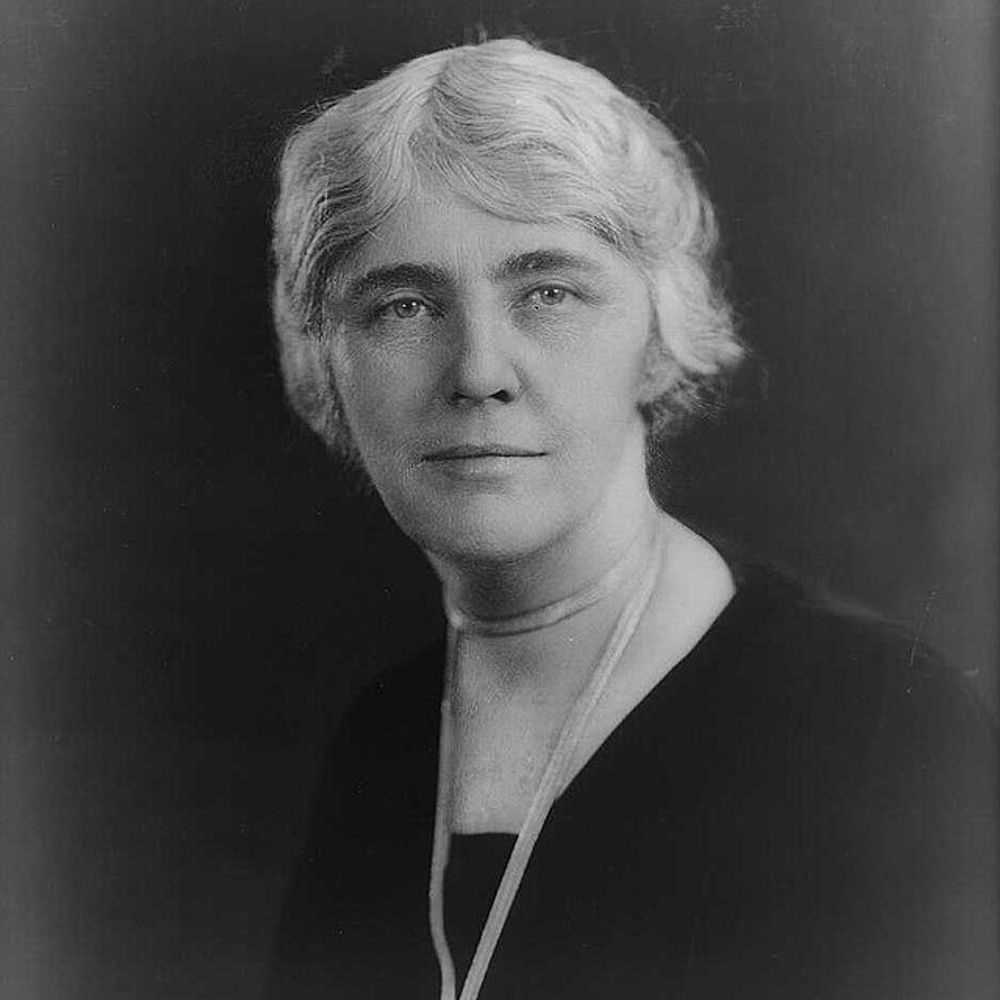
Lou Hoover was known for being an academic and scholar. In fact, she studied a variety of foreign languages. She often appeared on radio broadcasts to advocate for various causes, especially volunteerism. Outside of politics, Lou is known for her major role in Girl Scouts of the United States of America. On two separate occasions, she served as the national GSUSA president. In Siena Research Institute’s study, she ranked 11th in 1982 and has not fallen too much below that since.
<span>12. </span>Louisa Adams
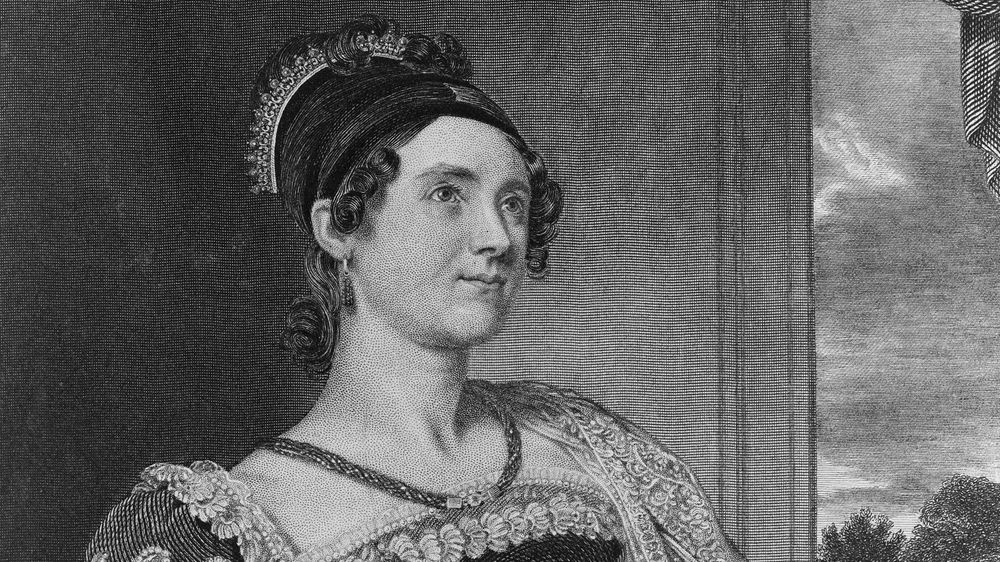
Ranking 14th in Siena Research Institute’s 1982 survey is Louisa Adams, the first lady from 1825-1829 during President John Quincy Adams’s term. Notably, Louisa did not attend her husband’s inauguration due to the nature of his victorious election. Since the vote came to the House of Representatives to decide, John Quincy Adams struck a deal with the Speaker of the House – Henry Clay. This deal secured votes for Adams and promised Clay the position of Secretary of State. Despite her disapproval, Louisa still made the most of her time as first lady. She is known for her women’s rights advocacy and for being an abolitionist.
<span>13. </span>Barbara Bush
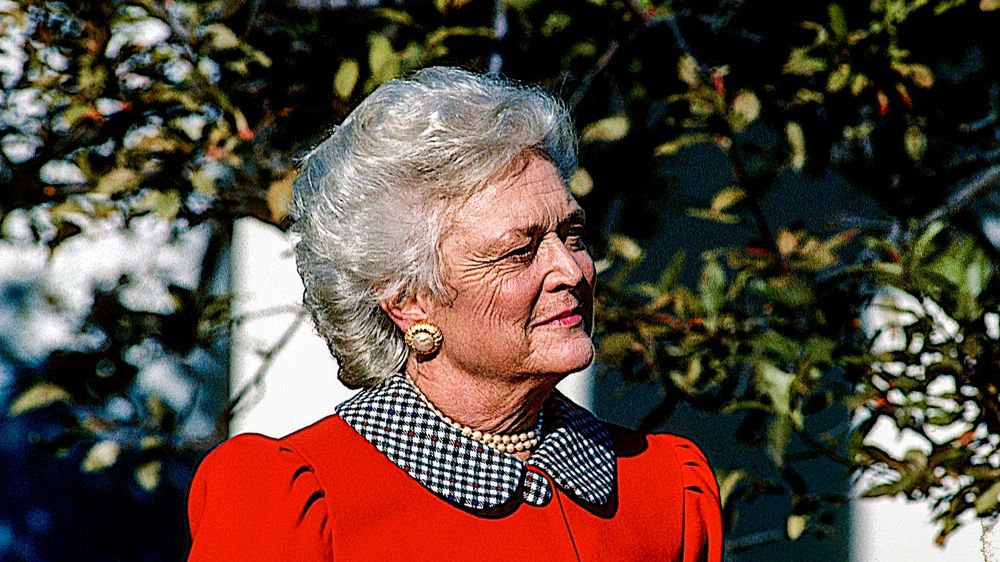
Barbara Bush had a passion for ensuring childhood literacy. She was deeply involved in multiple literacy-focused organizations. However, she was also an advocate for other causes including- reproductive and civil rights (particularly LGBT rights), and AIDS awareness. This was incredibly striking and often clashed with her own party’s policies or platform. However, in 2019 it was revealed she no longer considered herself a Republican at the time of her death. Moreover, she made an effort to continue previous first ladies’ work to upkeep the White House through refurbishments and restoration processes. During her husband’s presidency, Barbara secured a 72% approval rating.
<span>14. </span>Bess Truman
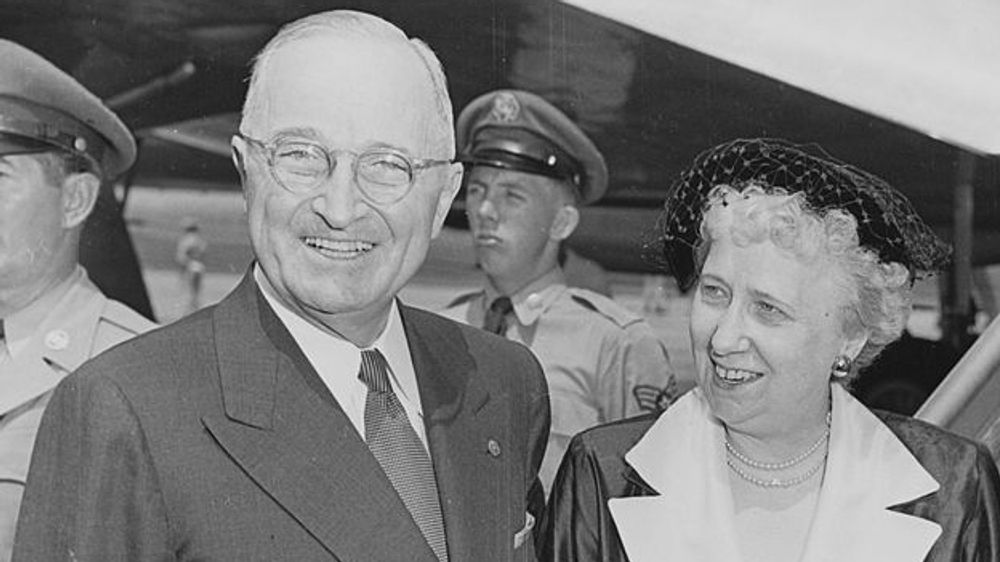
Bess Truman was ranked 15th by the Siena Research Institute’s survey in 1982. During her time as first lady, Bess did not enjoy some of the aspects of the job the other first ladies had. She wasn’t interested in the social scene in D.C. that comes with the job nor the constant politics inherent to her husband’s job. She hated that she had no personal privacy as first lady. Bess hardly showed her face to the public media, avoiding press conferences. During her time, though, she was involved in several organizations including the Women’s National Democratic Club and the Washington Animal Rescue League.
<span>15. </span>Ellen Wilson
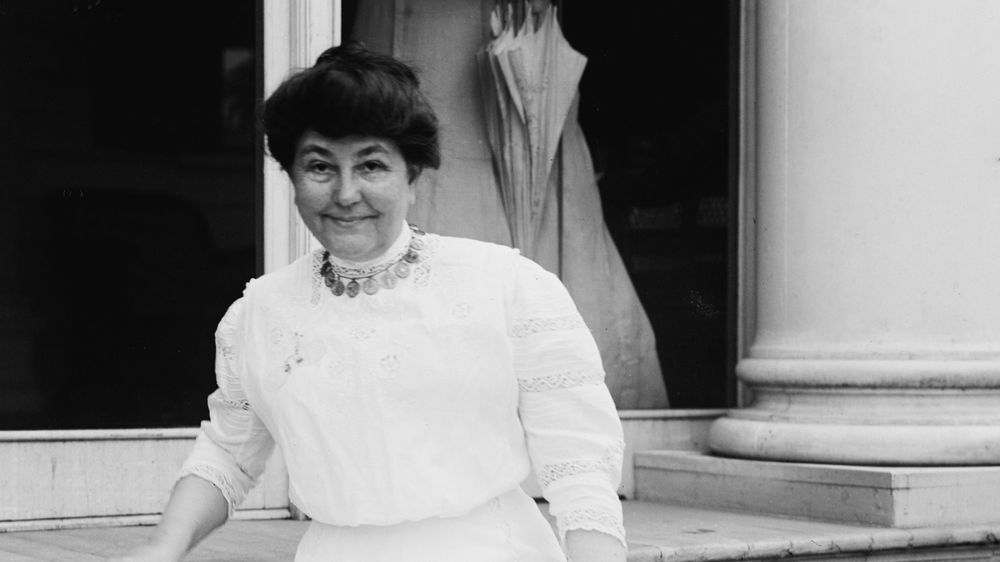
Ellen Wilson was known for her artistic and creative side. She had an educational history in the arts. During her time as first lady, she notoriously spent time creating, sketching, and painting. She had her own studio in the White House and donated much of her work to charitable causes. Ellen successfully navigated the D.C. social scene by hosting simple yet entertaining parties. One of her main causes that she focused on was improving D.C. housing, particularly for Black Americans. Her time in the White House was short-lived due to her untimely death in 1914. History looks back on her fondly, ranking her at 16th according to Siena Research Institute’s 1982 survey.
<span>16. </span>Grace Coolidge
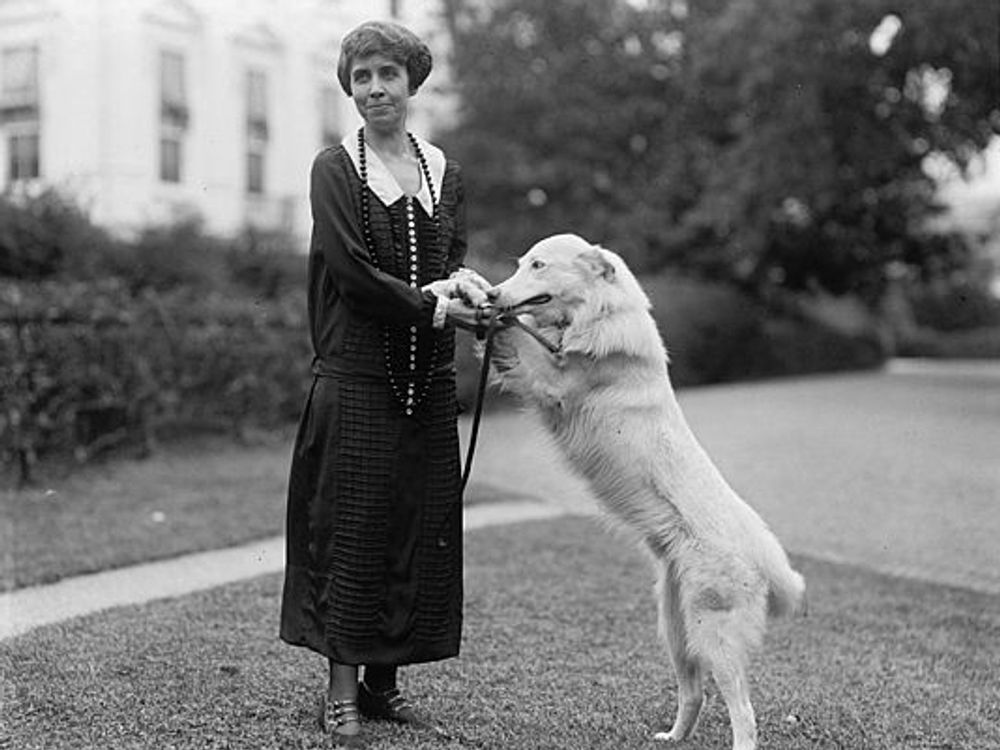
Ranked 17th in Siena Research Institute’s 1982 survey, Grace Coolidge was known for overall avoiding politics. While her husband became more entrenched in the world, Grace continued to shy away from it. Rather than making commentary on timely political topics, Grace focused on causes that had popular support, specifically charitable organizations such as the Red Cross. When her son died, the public looked kindly on Grace and gave their sympathy. She continued in her role and work, nonetheless. Even following her husband’s presidency, Grace continued nonprofit work with various communities (including Jewish refugees and the deaf). Additionally, she wrote in and contributed to multiple magazines.
<span>17. </span>Martha Jefferson Randolph
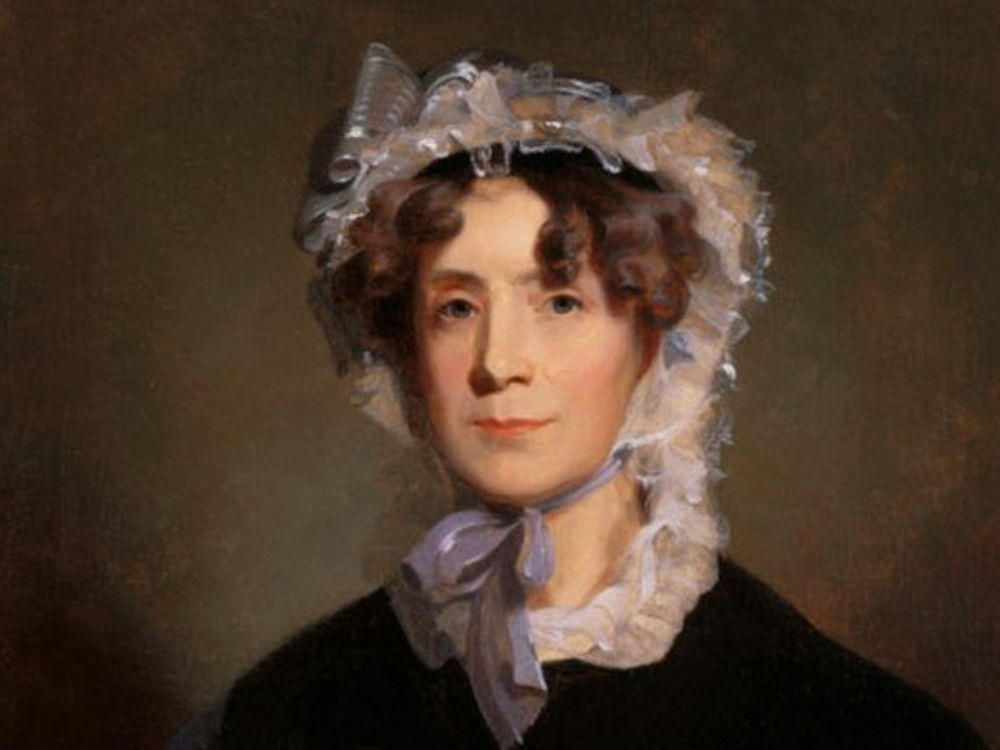
President Thomas Jefferson’s wife died years before he would make it to the White House. As a result, his daughter — Martha Jefferson Randolph — assumed the role, duty, and responsibilities of the first lady. Martha notoriously pleaded with her father to end slavery in America as she learned about the possibility of a slave-less nation through her private education and in her travels. She spent much of her life in Paris where she did meet with world leaders. Martha was known for a life of frills, balls, and sophistication. During her time in the White House, Dolley Madison also aided with hosting responsibilities. Martha ranked 18th in the Siena Research Institutes 1982 survey.
<span>18. </span>Sarah Polk
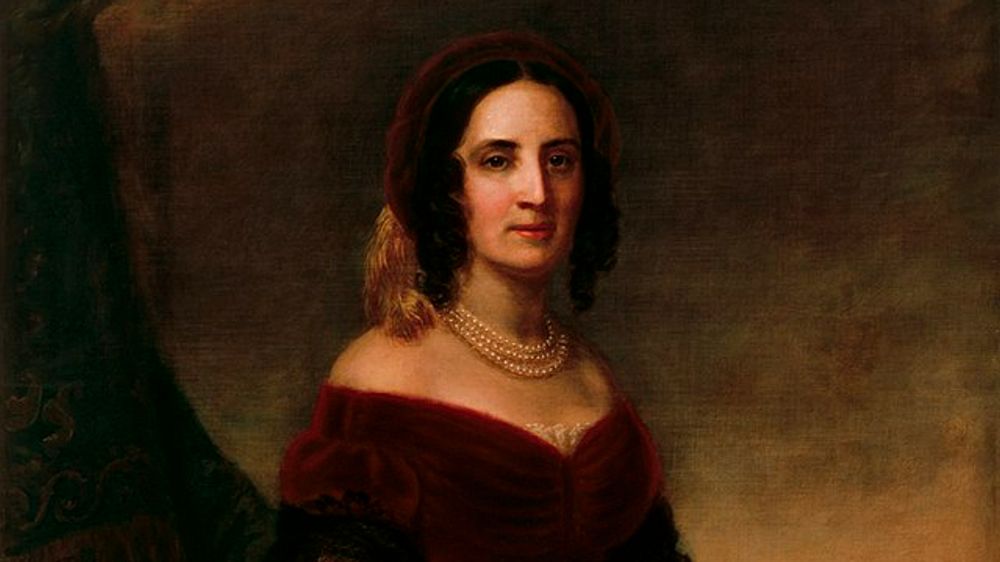
From 1845-1849, Sarah Polk served as the first lady in the White House. Like many prior first ladies, Sarah was notorious for her hosting skills and social savviness which further helped her husband’s career and political ambitions. She was elaborate in the meals and alcohol she served. Behind the scenes, Sarah would advise her husband and help with speech writing. She would travel with her husband and played a role in his campaigns. As such, she wrote for a newspaper to help support the campaign. Sarah supported the concept of manifest destiny and was vocal about this controversial subject. The Siena Research Institute study has found that the American public looks back on her as a mid-tier first lady, ranked at 22nd in 1982.
<span>19. </span>Emily Donelson
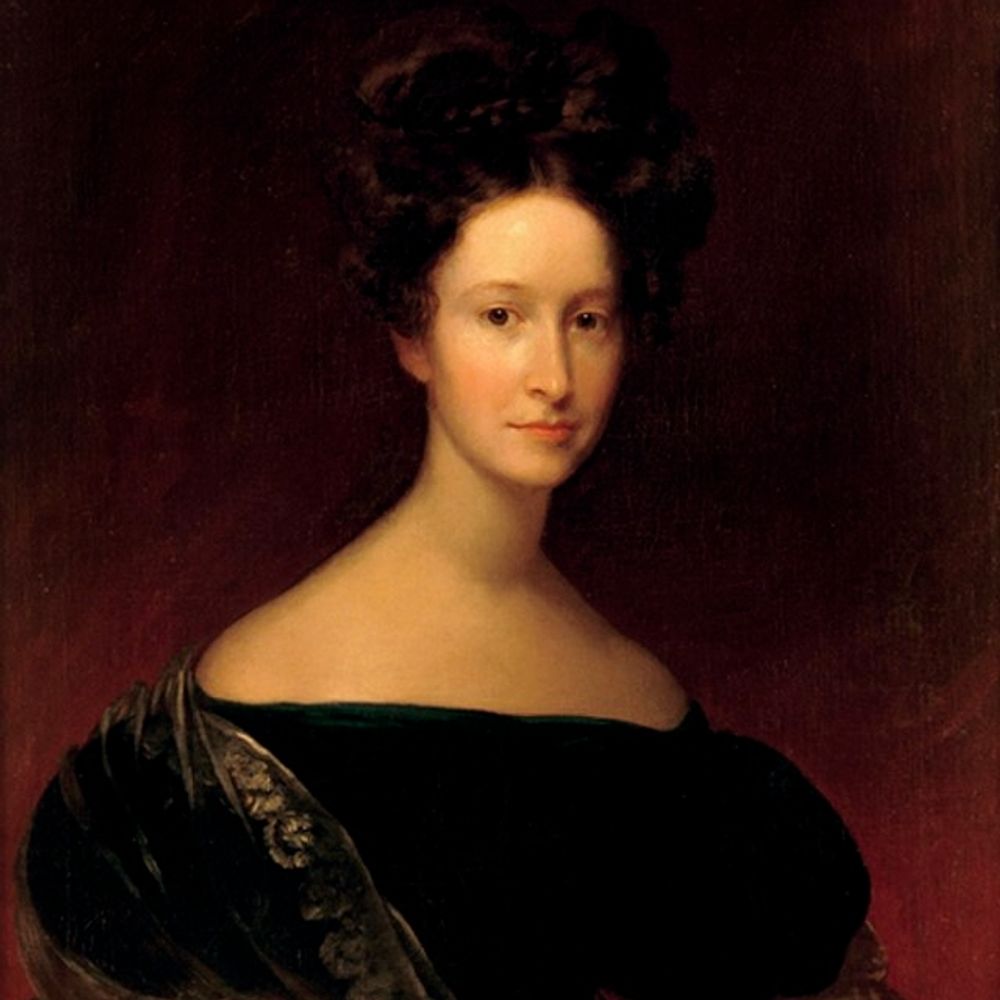
Emily Donelson was not married to President Andrew Jackson, rather she was appointed following his late wife’s death. Emily was the niece of Rachel Jackson (his wife). Emily’s husband served as an assistant to the president while Emily took over the hosting and household roles. Emily was a sociable person, even befriending President Jackson’s rival — President John Quincy Adams. Notoriously, Emily and the president had a following out over a controversy surrounding Peggy Eaton. When Emily refused to come back to the White House, President Jackson asked someone new to assume the hostess responsibilities. History looks back on Emily in a nuanced light, and not entirely positively. As a result of these events and the controversial nature of Jackson’s presidency, the Siena Research Institute found in their 1982 survey that she was ranked 26th.
<span>20. </span>Michelle Obama
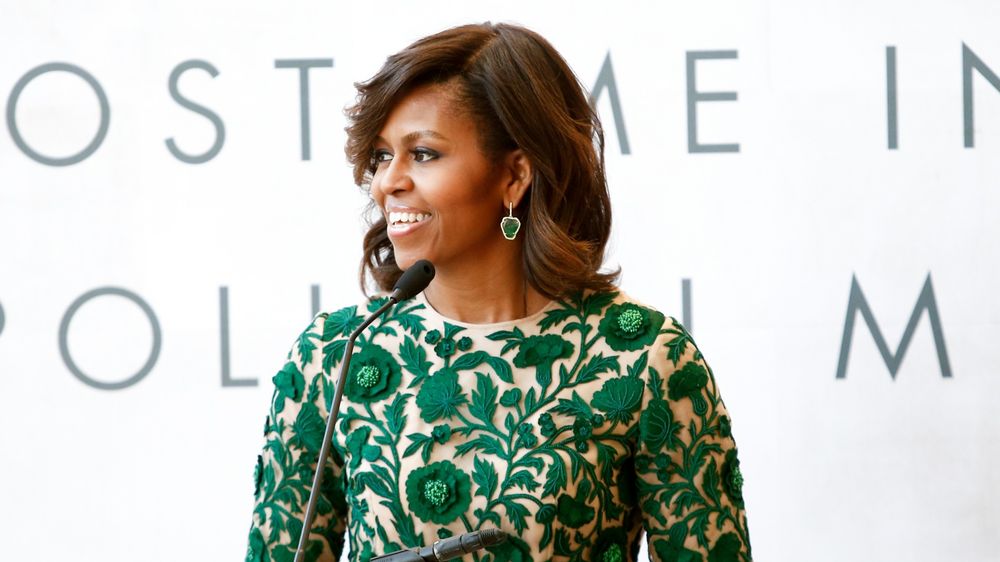
Often, the more recent a first lady has been in office, the less adoration they will receive. People tend to look back on history with starry eyes, but for recent first ladies like Michelle Obama, they are actively and currently critical. Nonetheless, Michelle had a 66% approval rating while in office. She is known for having been one of the most educated first ladies to date. During her time in the White House, she worked with President Obama on policy. One of her main causes was battling childhood obesity and she is known for a variety of campaigns to encourage healthy eating and exercise. Many remember her efforts to change the school lunch standards across the country.
<span>21. </span>Dr. Jill Biden
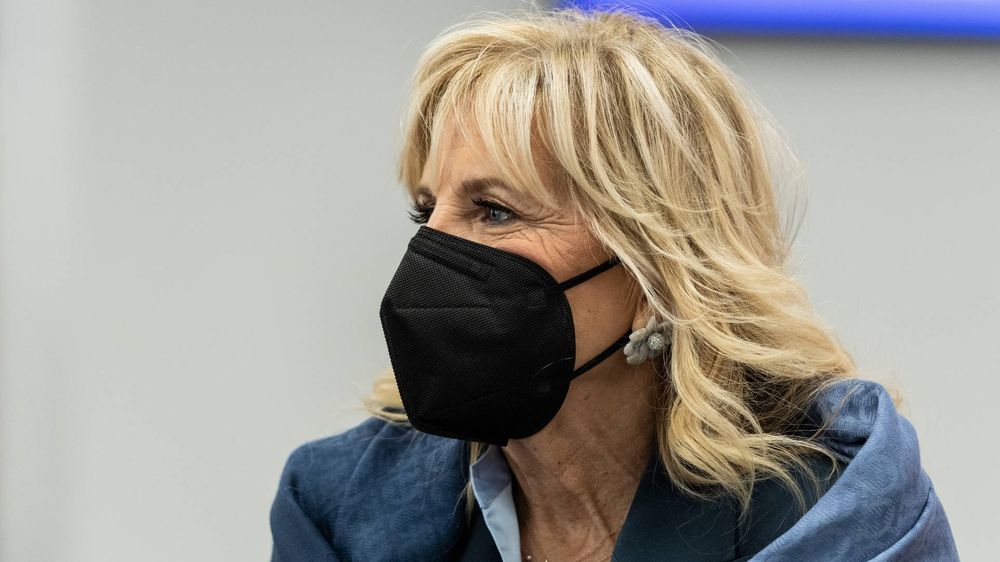
Dr. Jill Biden earned her doctoral degree in educational leadership from the University of Delaware. She is an active professor, lecturer, and academic even while in the role of the first lady. Holding a paying job such as her role at NOVA has been the only time in United States history where a first lady has maintained a job independent of the White House while her husband is in office. Dr. Biden’s main focus has been on aiding military families. Moreover, she is an advocate for free community college and education access. Dr. Biden is constantly a source of political conversation and the exact approval rating of the general public is still unclear.
<span>22. </span>Julia Gardiner Tyler
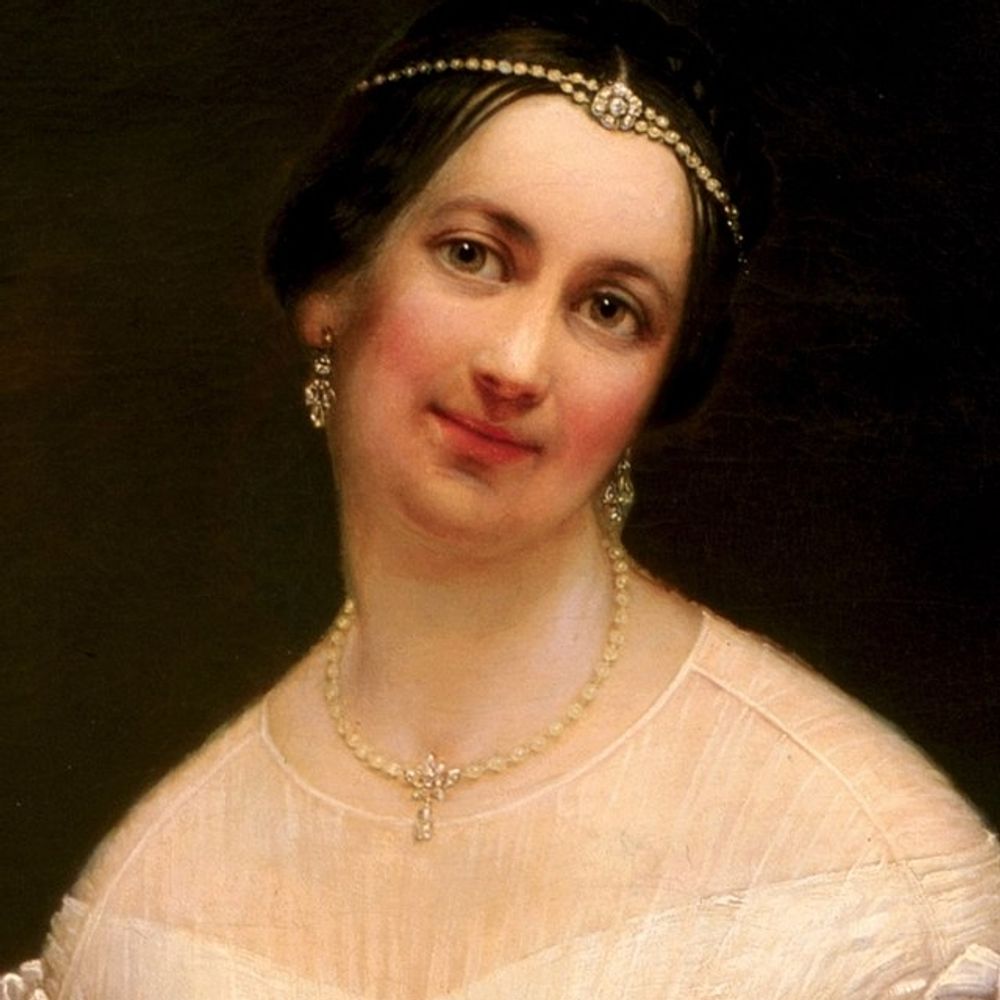
Siena Research Institute’s 1982 survey found that Julia Gardiner Tyler was ranked number 27 of first ladies. She served as the tenth-ever first lady. Julia, like many before her, assumed a hosting and social role whereas she focused on maintaining public and social appearances. She is known for insisting on “Hail to the Chief” being used to introduce her husband’s arrival. Julia Gardiner Tyler was survived by Julia Gardiner Tyler Wilson who would go on to be a founder of Kappa Delta Sorority. First Lady Julia Gardiner ended her time in the White House hosting a large party in the White House with over 3,000 attendees.
<span>23. </span>Hillary Clinton
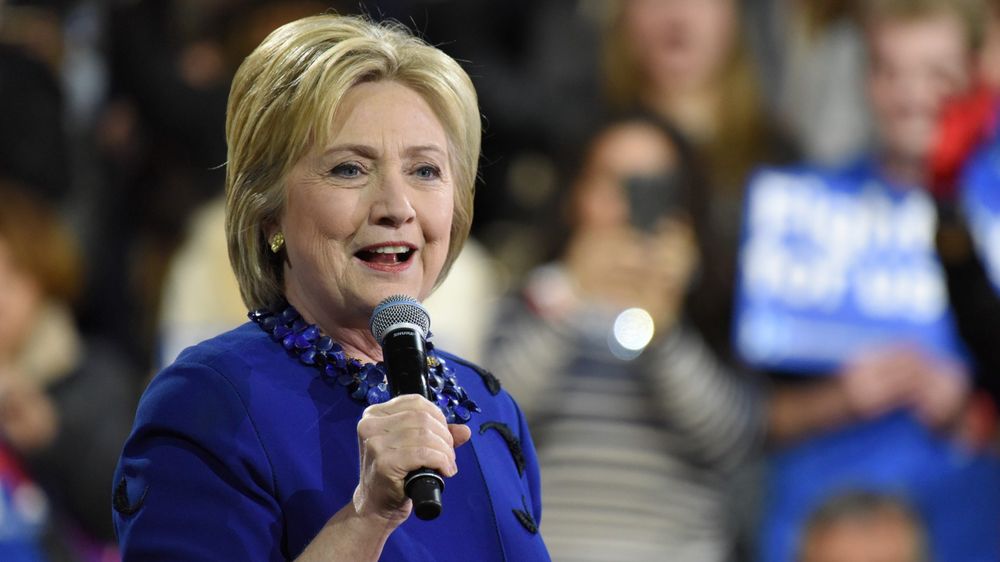
Despite controversy surrounding her most recent bid for the White House, Hillary Clinton received a 66% approval rating during her time as first lady. At the time, Hillary’s primary cause was centered around healthcare. She also was an advocate for legislation that aided adoption including the Adoption and Safe Families Act. Both herself and her husband were struck with controversy as a result of the Whitewater controversy. Hillary, beyond her time as first lady, is also a career politician, having served in Congress and as Secretary of State. Moreover, while her bid for president was unsuccessful, she did notably win the 2016 popular vote.
<span>24. </span>Mamie Eisenhower
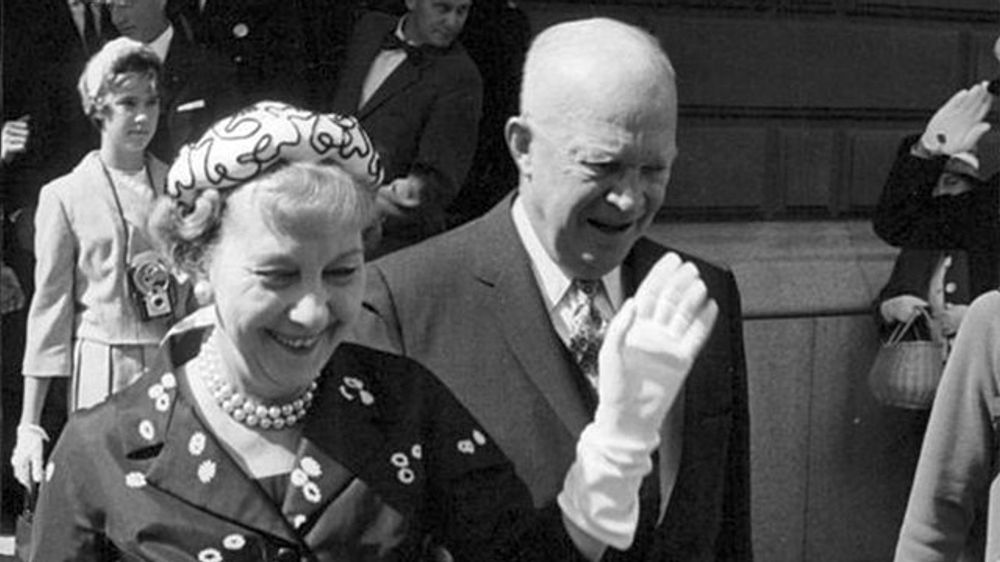
Mamie Eisenhower was ranked low at 31 in Siena Research Institute’s 1982 survey, but by 2003 moved up slightly to number 27. She lived with her husband in many military postings before he assumed the role as President of the United States. One of the first things she did at the White House was throw a picnic with her staff to celebrate. Mamie was known for her clothes, jewelry, cooking (especially her fudge), and her décor. She was often seen in a shade of pink that would later come to be known as “Mamie pink.” Mamie was also the first to decorate the White House for Halloween. While not as influential in policy as other first ladies, Mamie was an outgoing woman with an intrinsic sense of upholding high society standards.
<span>25. </span>Nancy Reagan
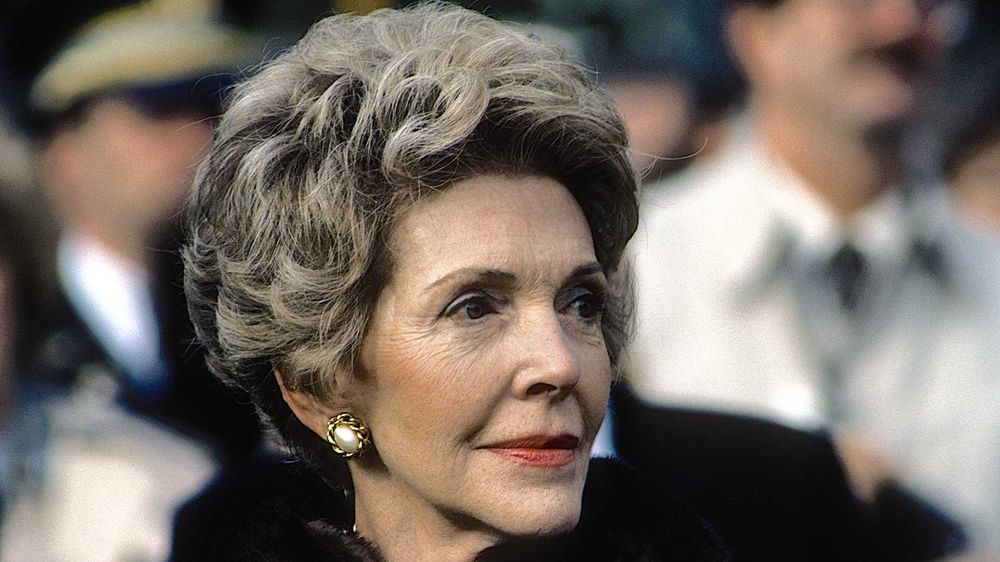
In 1981, Nancy Reagan’s approval rating sat at a low 28%. However, by 1989 she managed to bring that approval rating up to a solid 56%. While not a particularly high rating, it was certainly a big change in public perception. However, history ranked her as number 39 in Siena Research Institute’s 1982 survey. By 2003, she reached number 28. People’s feelings towards Nancy tend to change rapidly, but she is certainly one of the most notorious first ladies, if nothing else. During her time as first lady, she focused on a drug awareness campaign and launched “Just Say No.” In a quirky twist, Nancy was known to consult astrology for advice on keeping her husband safe, especially following an assassination attempt.
<span>26. </span>Angelica Van Buren
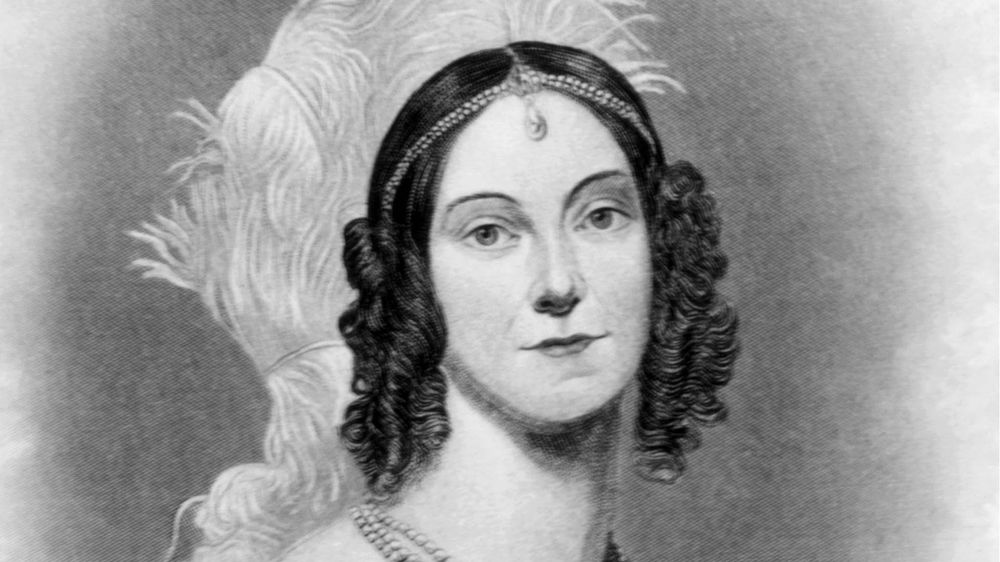
President Van Buren’s daughter-in-law — Angelica Van Buren — assumed the roles and duties of first lady during his term. This came as a result of Hannah Van Buren (President Van Buren’s late wife) dying untimely. Former First Lady Dolley Madison is the one who linked Angelica and Abraham Van Buren II. Angelica’s status was great politically for President Van Buren who was now more deeply entrenched into the Old South. Inspired by a trip to England, Angelica hoped to bring stylistic changes that were very European to the White House, though Americans did not love the change.
<span>27. </span>Pat Nixon
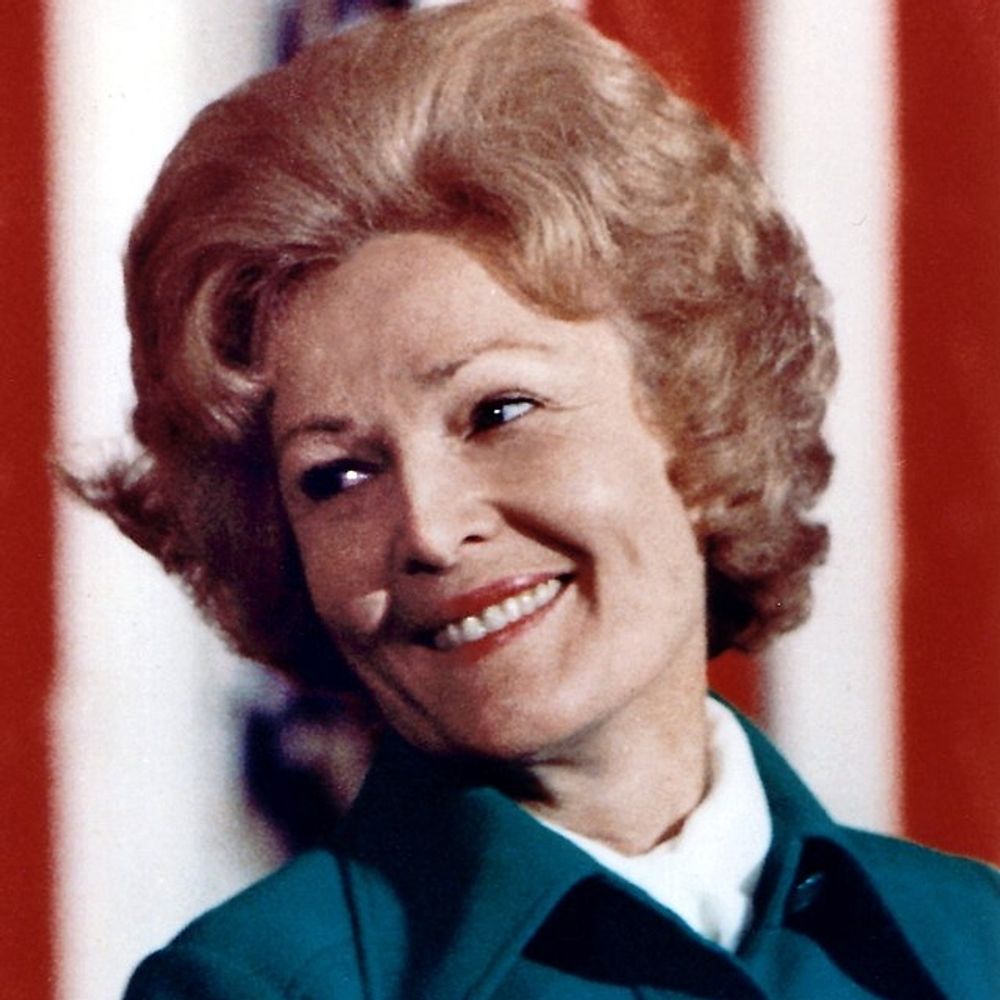
Pat Nixon ranks low when history looks back on her. She comes in at number 37 in Siena Research Institute’s survey. However, during her time as first lady, she was able to maintain a 54% approval rating. While not incredibly high, given the controversy surrounding her husband and Watergate, it is considerable. Pat’s major initiative was in encouraging volunteerism. She believed in starting local to help fix issues in communities. One volunteer group she was a part of is Women in Community Services. Moreover, she was known for traveling and talking with key political individuals both domestically and internationally. In many ways, she had her hand in American diplomacy.
<span>28. </span>Mary Todd Lincoln
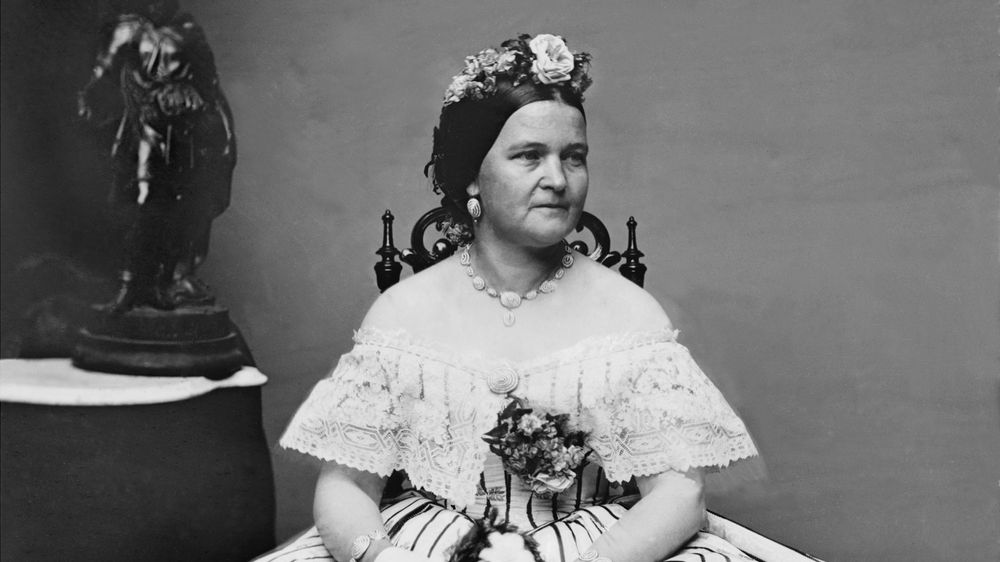
Mary Todd Lincoln was ranked last in the 1982 Siena Research Institute survey. Lincoln was an incredibly wealthy first lady before her time in the White House. In fact, she came from a slave-owning family. She was first lady during a time of harsh political tension and a split in the country. Mary was often criticized for her heavy personal spending as well as the cost it took her to refurbish the White House. Nonetheless, Mary supported Abraham Lincoln’s efforts and was sternly loyal to the Union. She was often also criticized for her rigid manners.
<span>29. </span>Florence Harding
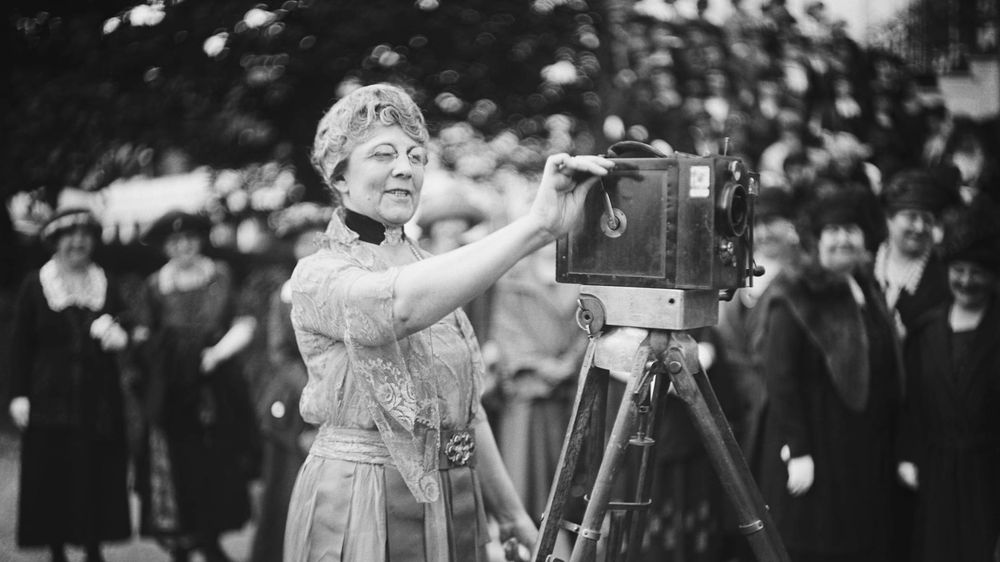
With a consistent almost last place rating in each of the Siena Research Institute’s surveys, Florence Harding is not well-liked by history. From 1921-1923, she assumed the roles and duties of the First Lady of the United States. Many referred to her as “The Duchess.” She threw elegant and elaborate White House parties. She urged her husband to open the White House up to tourists and make it more public. Florence was publicly distinguishable and revered in celebrity status. Moreover, she was vocal about her views on any and every subject.
<span>30. </span>Melania Trump
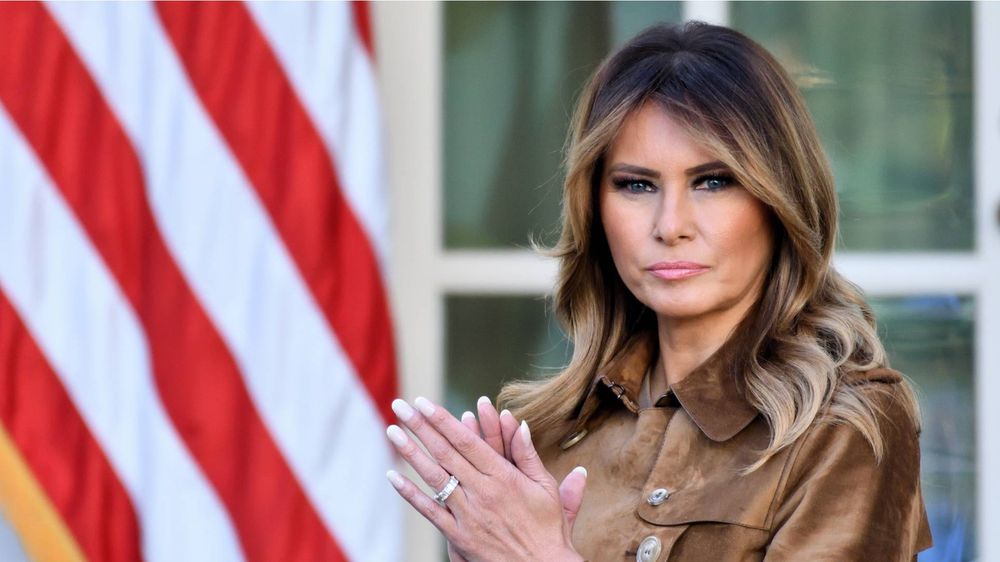
The most controversial first lady is Melania Trump. During President Donald Trump’s presidency (2016-2020), Melania was known for taking a backseat and often being rather quiet about her husband’s policy initiatives. Melania eventually would announce a campaign for cyberbullying awareness, which many called out for hypocrisy given her husband’s history with Twitter. She polled an approval rating of only 42%. After her term as first lady, she did not continue the “tea and a tour” tradition with Dr. Jill Biden as was customary during the transition of power.
<span>31. </span>Abigail Fillmore
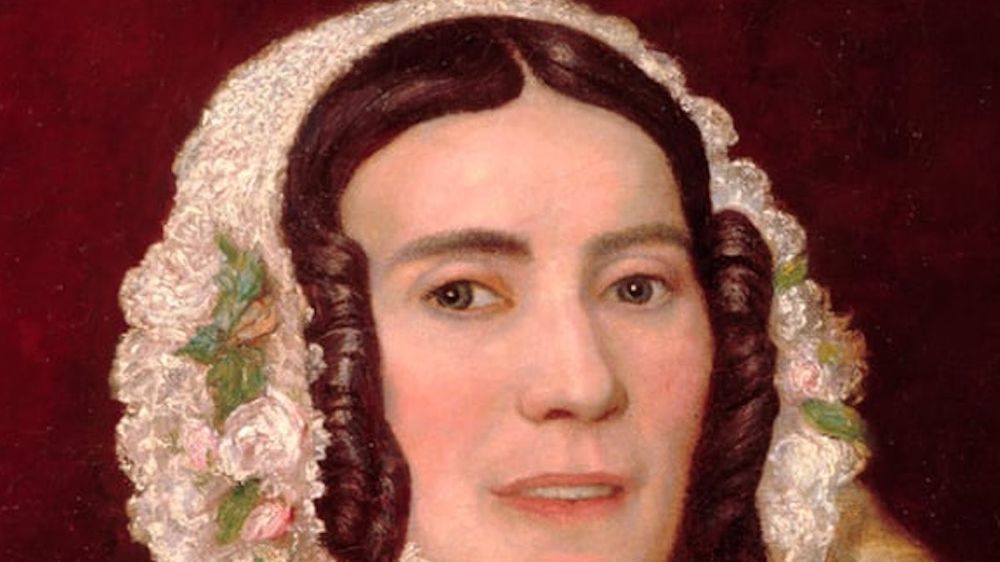
Abigail Fillmore served as First Lady of the United States from 1850-1853. She took on the role when her husband, then-Vice President Millard Fillmore became President upon the death of President Zachary Taylor. Upon moving into the White House, Fillmore – teacher and scholar by trade – was shocked to learn the presidential residence didn’t feature a library. With an appropriation of $2,000 from Congress, Abigail purchased books for a White House library and established a literary salon.
<span>32. </span>Eliza Johnson
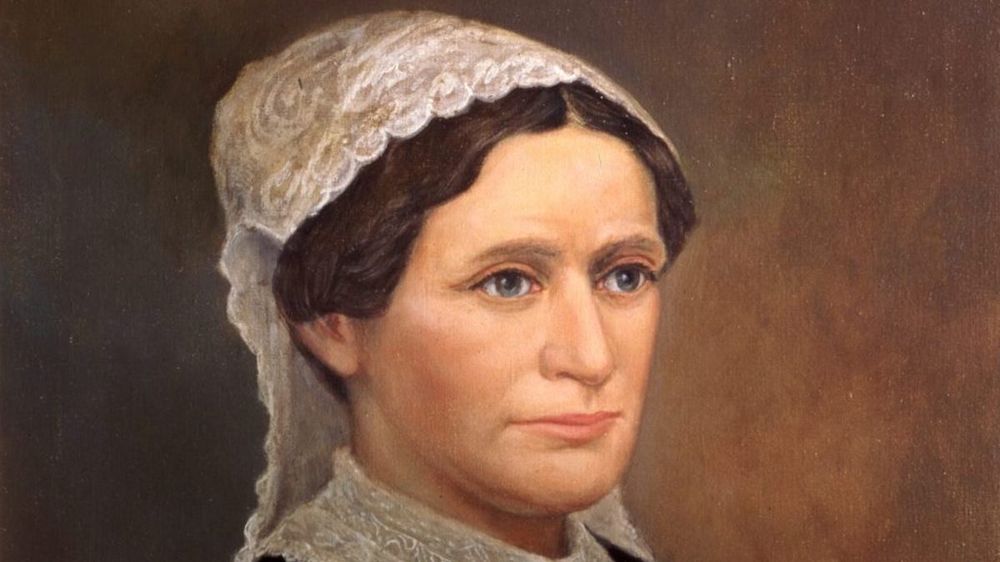
Eliza Johnson has long been known as one of America’s most private first ladies. She had long supported her husband’s political career from the shadows, content to remain out of the public eye. That became more difficult when Johnson, then vice president, ascended to the highest office in the land upon the assassination of Abraham Lincoln. Despite her new role as first lady, Johnson spent the vast majority of her time in the White House bedridden with tuberculosis. She only appeared publicly twice during her husband’s term- Once at a reception for Queen Emma of the Kingdom of Hawaii and once at her husband’s 59th birthday party.
<span>33. </span>Julia Grant
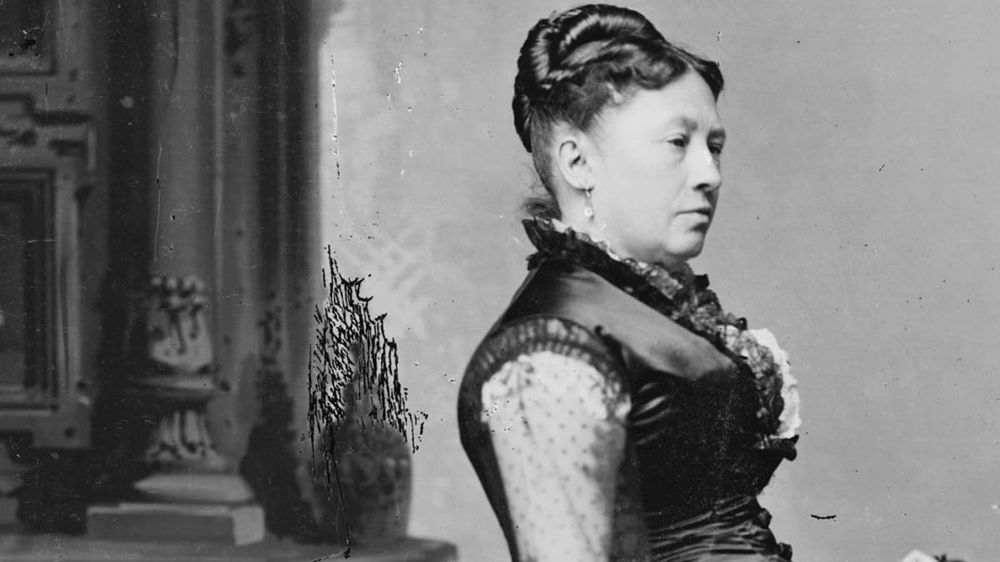
Julia Grant was one of the first First Ladies to truly embrace the role. She had been heavily involved in her husband’s campaign, so much so that when he was elected he turned to her and said “And now, my dear, I hope you’re satisfied.” Seemingly she was, as Grant became an acclaimed hostess as First Lady, while at the same time championing women’s rights and pushing forward the importance of her role. She was allegedly devastated upon learning that her husband would not seek a third term.
<span>34. </span>Lucy Hayes
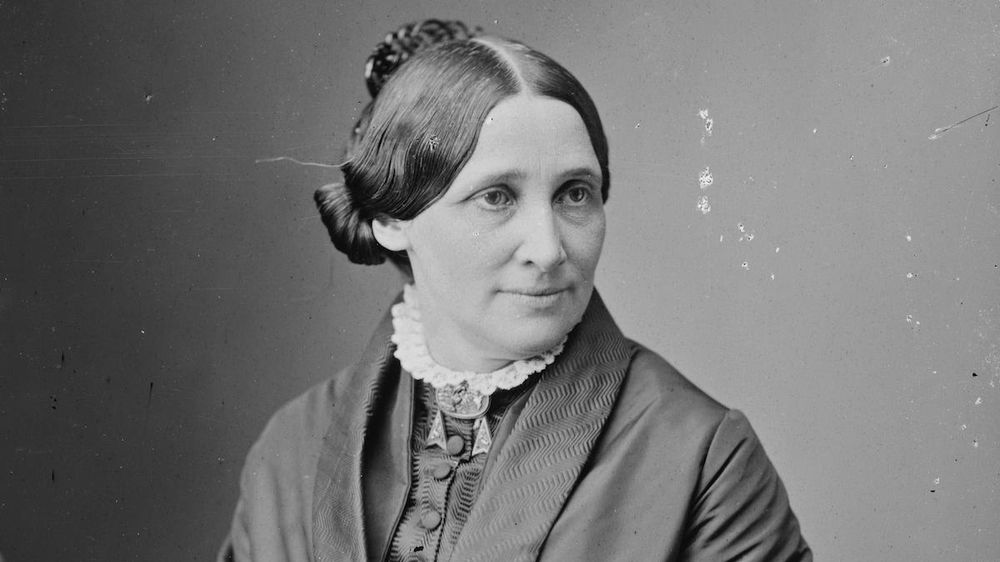
Lucy Hayes, wife of Rutherford B. Hayes, was a revolutionary First Lady in several respects. She was, for the time, an ardent supporter of African American rights (a controversial stance in post-Civil War America). In addition, historian Emily Apt Geer has explained that Hayes was also a champion for women’s rights (comparative to the times)- A twentieth century feminist might regret that Lucy Hayes did not support woman suffrage, but this would have been contrary to her social code and her concept of the role of a political wife. The example, however, that Lucy Hayes set for the nation as a hostess and homemaker, the adoration and respect accorded her by her family, her efforts to help other people, her sincere interest in politics, and the extent of her education, promised well for the future status of women in the American social and intellectual structure.
<span>35. </span>Lucretia Garfield
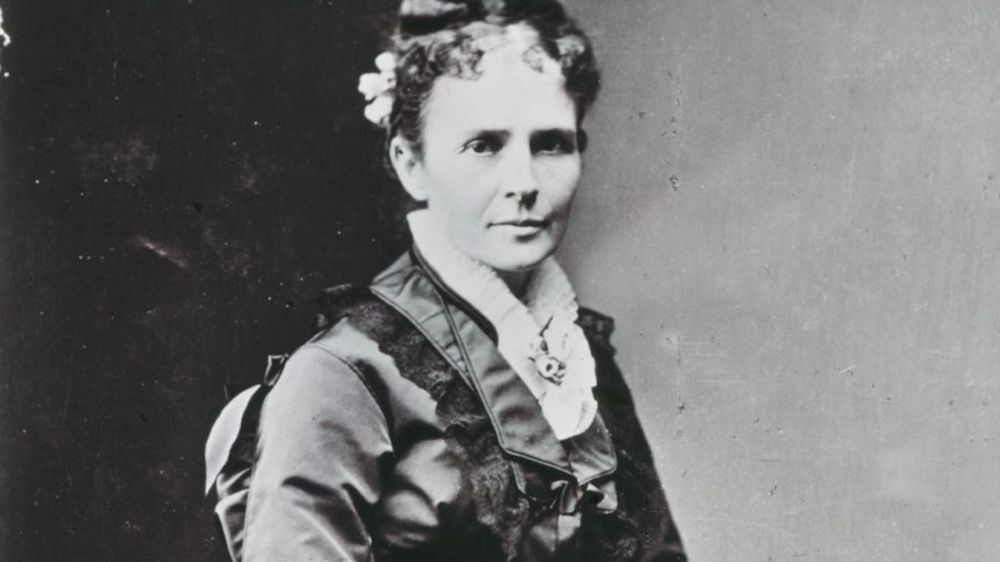
Lucretia Garfield played an important role in her husband, James A. Garfield’s, presidential campaign thanks to her knowledge of the inner-workings of the Republican Party of the time. Once her husband was elected, Lucretia was heavily involved in his choices to fill cabinet positions while planning to renovate the White House. However, shortly into the term, she contracted malaria and was still convalescing when her husband was assassinated in July. She dedicated the rest of her life to preserving his legacy.
<span>36. </span>Frances Cleveland
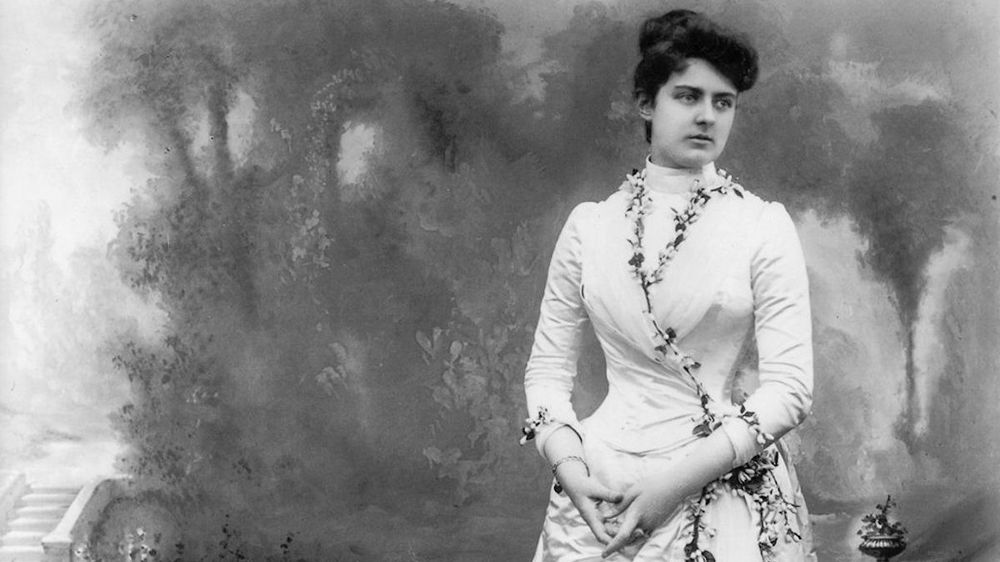
Frances Cleveland holds the distinction of being the youngest American First Lady of all time at 21-years-old. She married President Grover Cleveland, who was 28 years her senior and who had entered the White House as a bachelor, in 1886. The two remained together through both of his non-consecutive terms, and the rest of his live. Cleveland was a popular First Lady through her time in the White House, but her later controversial political takes – including opposing women’s suffrage – have soured the view on her.
<span>37. </span>Ida McKinley
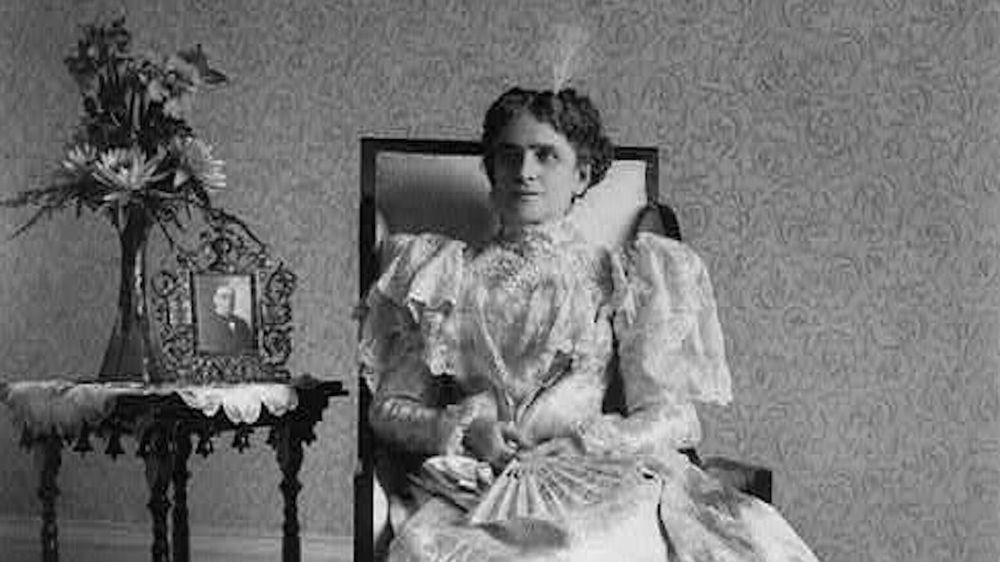
Ida McKinley stands with Mary Todd Lincoln and Jackie Kennedy as one of the most tragic First Ladies in American history. Tragedy followed her long before her husband, William McKinley, was elected president. The couple had two daughters, Katherine “Katie” McKinley and Ida McKinley, both of whom died very young, shattering the elder Ida. Her husband became immensely overprotective, guarding her from all social expectations even after he became president. Suffice to say, her husband’s 1901 assassination was another major blow to Ida, effectively robbing her of any will to live according to those around her. Ida died less than six years after husband’s murder.
<span>38. </span>Helen “Nellie” Taft
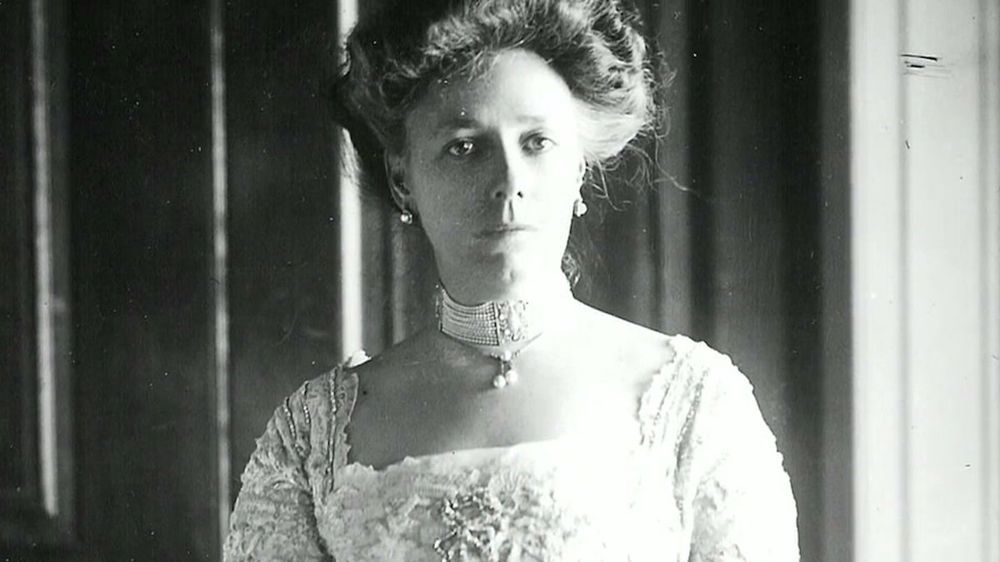
Helen “Nellie” Taft is perhaps most popular and best remembered for the planting of “the planting of the 3,020 Japanese cherry trees around the Tidal Basin and on Capitol grounds; with Viscountess Iwa Chinda (the wife of the Japanese ambassador), she personally planted the first two saplings in ceremonies on March 27, 1912.” In addition to beautifying DC for decades to come, Taft also continued expanding the traditions of White House receptions and other social events.
<span>39. </span>Edith Wilson
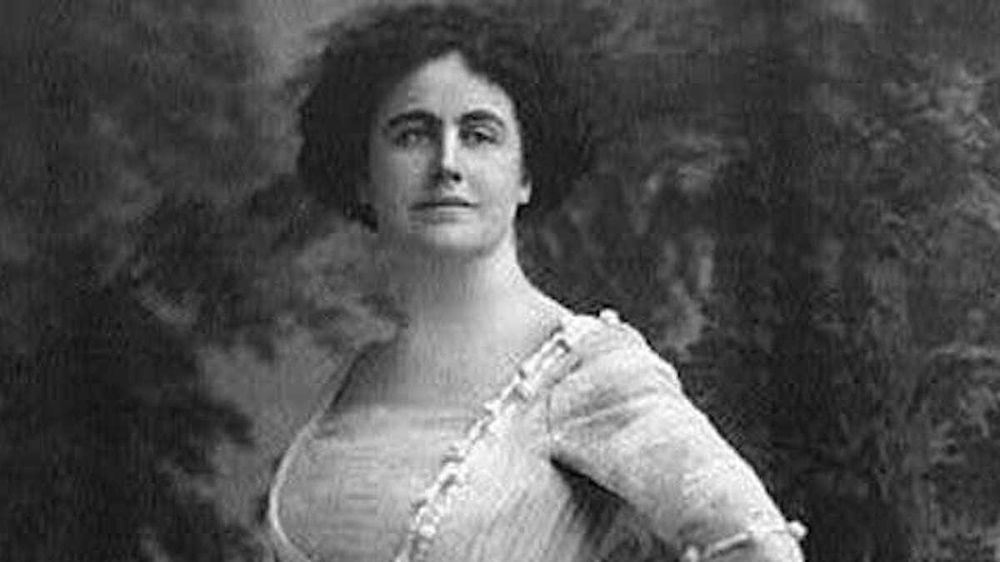
Edith Wilson stands as one of the most controversial First Ladies in U.S. history. She married President Woodrow Wilson in March of 1915, a short time after his first wife passed away. In her early years as First lady, Wilson was relatively well-liked and became the first of her position to visit Europe. However, things took a turn when President Wilson suffered a massive stroke in October of 1919. The stroke left him bedridden and paralyzed, though the true extent of Woodrow Wilson’s condition was hidden from many in both the public and government by Edith and the his doctors. The First Lady became the only conduit between Wilson and his cabinet, leading to claims that she had usurped power from him, while Edith herself always claimed she acted on his wishes.
<span>40. </span>Rosalynn Carter
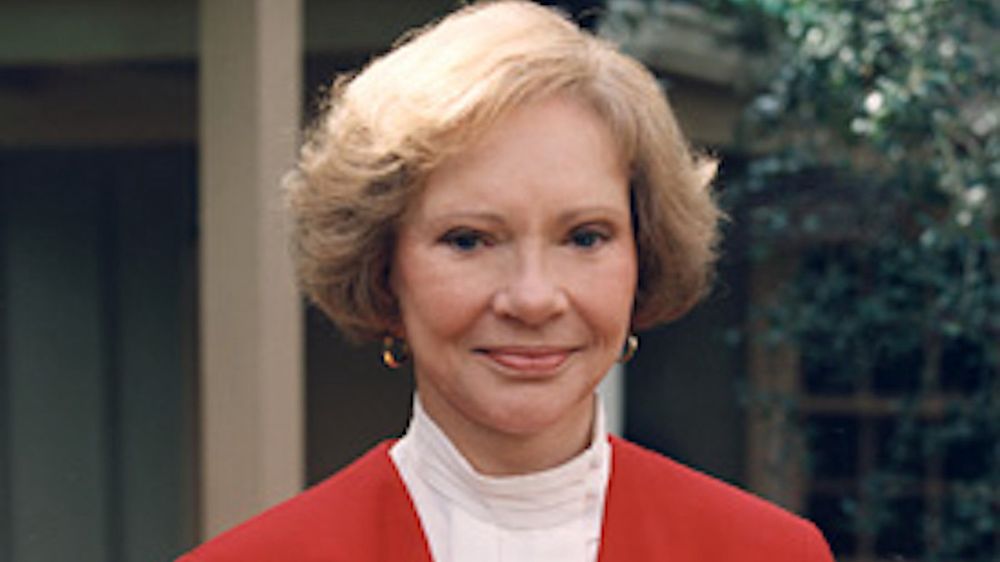
Eleanor Rosalynn Carter was known as the “steel magnolia” during most of her time as First Lady, owing to the idea that her sweet and genteel exterior hid a “tough as nails” interior that allowed her to deal with the many slings and arrows tossed at her and her husband, President Jimmy Carter. Carter was best known for her dedication to the Equal Rights Amendment, mental health issues, and the Habitat for Humanity organization.
Quick Links
